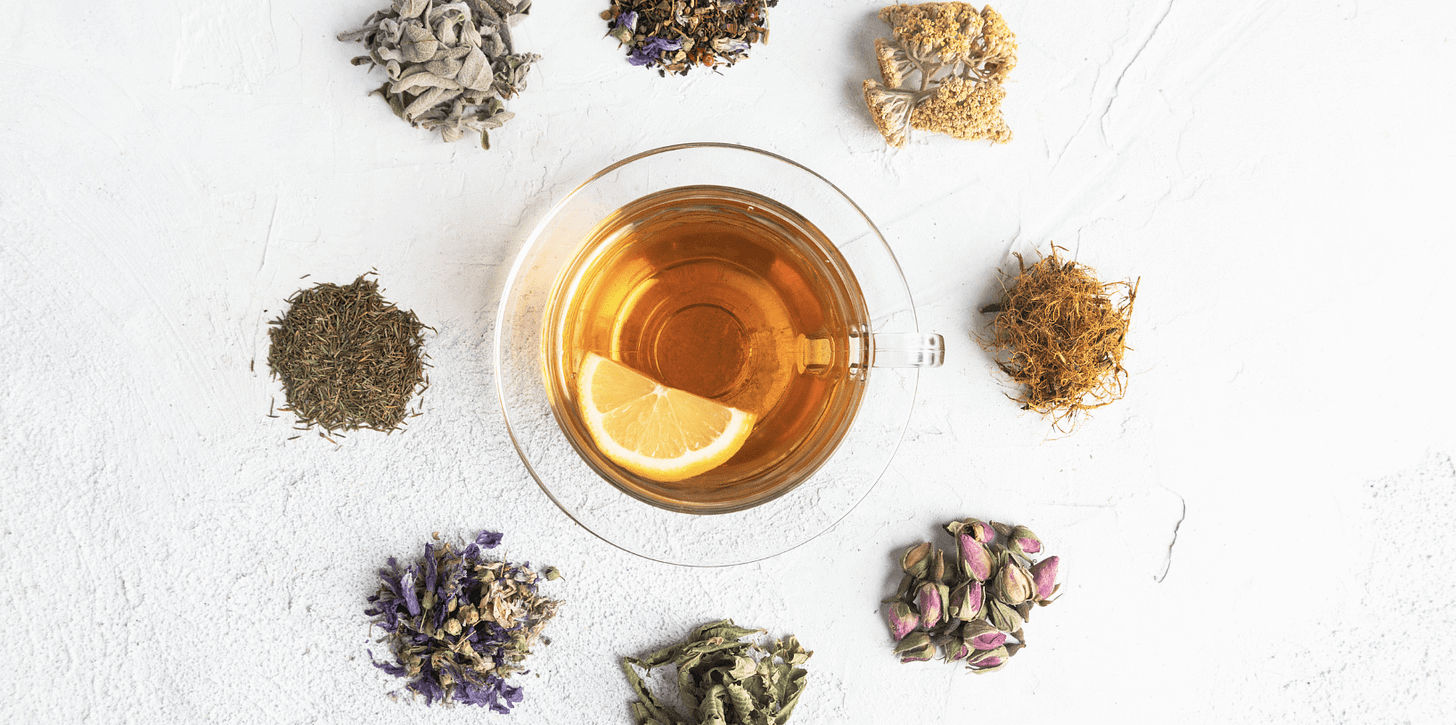The Science of Tea - Far More Than an Afternoon Drink
Written By Devika Chauhan
Chamomile or lavender. Masala chai or peppermint. With a scone smeared in jam or a biscuit engulfed in chocolate. Tea comes in all flavors and cultures from around the world, each carrying its rich heritage and history. We all love a cup of our favorite warm beverage. But, perhaps tea’s true power is not just encapsulated within the walls of your china set.
Tea with medicinal aspects is rooted in herbal tea. However, this type of “tea” does not actually contain tea leaves, but blends or infusions of dried up fruits, flowers and spices. These are called Tisanes.
For example, chamomile tea is recognised to possess various bioactive phytochemicals, which function like antioxidants. Derived from the flowers of the Asteraceae plant family, the benefits of chamomile tea range from lowering the risk of heart disease to support the immune system. It has also been studied that chamomile tea aids women suffering from premenstrual syndrome and even offers protection against some forms of cancer.
Additionally, hibiscus tea, made from the dried up calyx of the flower, is also a great antioxidant. Due to the prevalence of the antioxidant “anthocyanins'', hibiscus tea is consumed as an antiviral drink. It has been shown to lower blood pressure levels, decrease bad cholesterol levels and offer other cardiovascular benefits.
Lastly, white tea, obtained from the Camellia sinensis plant native to China and India, is also known for its medicinal properties. Along with being one of the least processed teas, and very low in caffeine, studies show that it can also be effective in scare off specific forms of cancer. White tea can also be beneficial for teeth and gum health due to its abundance in fluoride, catechins and tannins. These elements are helpful in making teeth more resistant to acid and sugar, strengthen teeth, and fight plague. (2022)
Although this blog post only explains an overview of some of the many forms of tea crafted since centuries, there are thousands of other household teas with a plethora of health benefits. However, it is important to note that, sometimes side effects may kick in, and those with certain diseases or experiencing pregnancy should also avoid certain teas. Remember to always consult a doctor. Overall, tea comes in many flavours, each perfectly serving the comfort desired, while bringing a side dish of nature’s own pharmacy.
References
Harvard Health Publishing. (2021, October 21). The health benefits of 3 herbal teas. Harvard Health. https://www.health.harvard.edu/nutrition/the-health-benefits-of-3-herbal-teas
Penn Medicine . (2022, March 4). The Hidden Health Benefits of Tea. Penn Medicine; University of Pennsylvania. https://www.pennmedicine.org/updates/blogs/health-and-wellness/2019/december/health-benefits-of-tea#:~:text=Scientists%20have%20found%20that%20l,decreasing%20type%202%20 diabetes%20risk.


